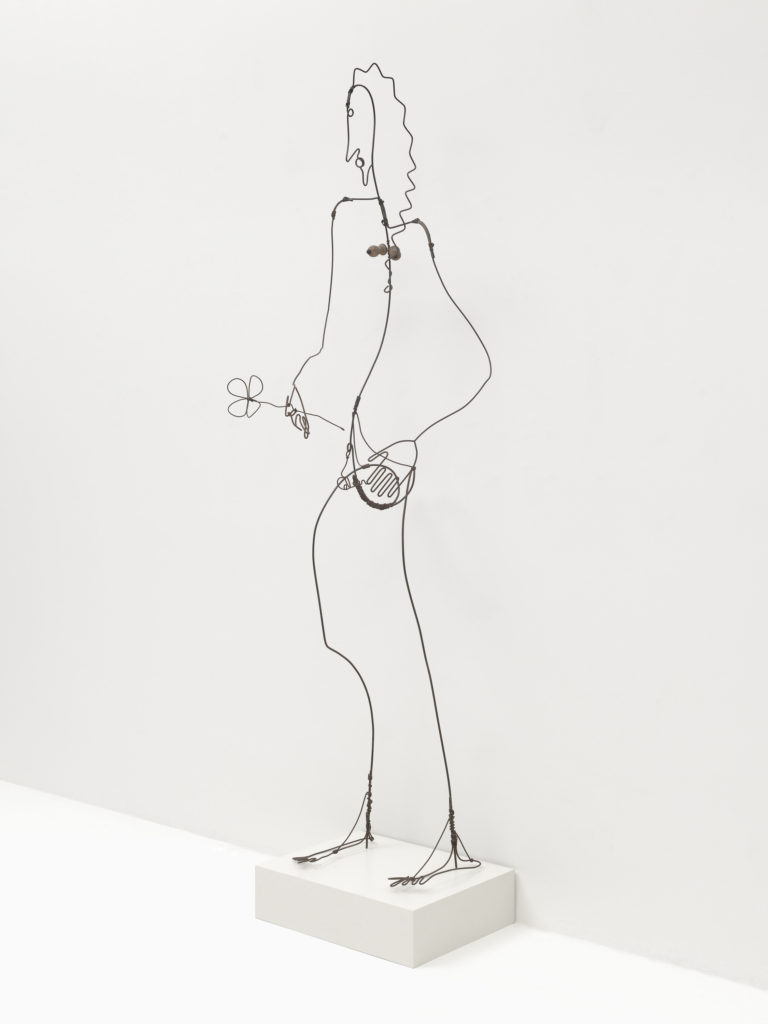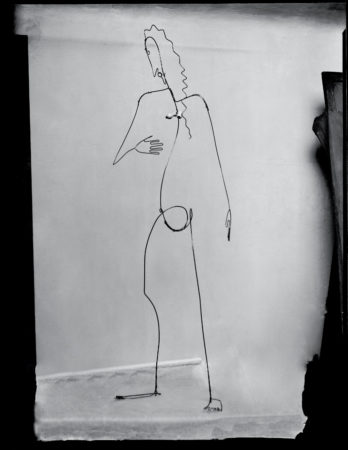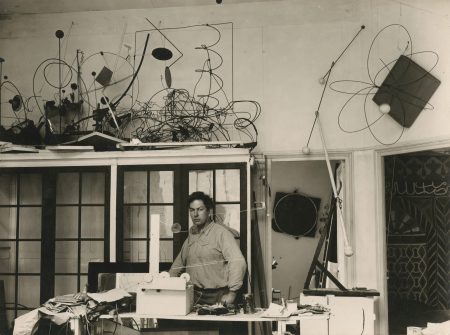



Solomon R. Guggenheim Museum, New York. Alexander Calder: A Retrospective Exhibition. 6 November 1964–31 January 1965.
Solo ExhibitionNational Gallery of Art, Washington, D.C. Alexander Calder: 1898–1976. 29 March–12 July 1998.
Solo ExhibitionMusée National d’Art Moderne, Centre Georges Pompidou, Paris. Alexander Calder: les années parisiennes 1926–1933. 18 March–20 July 2009. Originated from the Whitney Museum of American Art, New York.
Solo ExhibitionCalder exhibits four sculptures, including Romulus and Remus and Spring, in the Twelfth Annual Exhibition of the Society of Independent Artists at the Waldorf-Astoria, New York.
Calder exhibits Romulus and Remus and Spring at the Salon de la Société des Artistes Indépendants, Paris. The public reaction is a mixture of confusion and delight. One critic remarks, At first, I believed that electricians had forgotten their electrical wire in this room, but
as I passed, a wire became agitated and I noticed that it represented the head of a she-wolf. Another tangle of electrical wire represented, by all evidence, a giant young woman. Another critic advises, All the same, look at them. Who knows if the sculpture of Mr. Calder is not that of the future? In any case, it doesn’t spawn melancholy.
In a review of Calder’s solo show at Galerie Billiet-Pierre Vorms, Paris, the phrase “drawing in space” is coined to describe Calder’s wire sculptures. Horses rear up, riders brace themselves, dancers throw to the sky legs more rigid than doorbell wires. It looks like a drawing in space. On
the following day, Paul Fierens uses the phrase to describe Romulus and Remus and Spring at the Salon de la Société des Artistes Indépendants, Paris.
Soon after moving to Paris in 1926, Calder created his Cirque Calder. Made of wire and a spectrum of found materials, the Cirque was a work of performance art that gained Calder an introduction to the Parisian avant-garde. He continued to explore his invention of wire sculpture, whereby he “drew” with wire in three dimensions the portraits of friends, animals, circus themes, and personalities of the day.